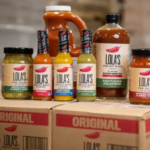A U.S. government agency signed a political risk insurance deal with a Palestinian firm Thursday to help guarantee investments in the West Bank as part of an international effort to develop the beleaguered local economy.
The measure is meant to allay concerns by investors that their money is at risk in the turbulent Palestinian territories, especially at a time when the fate of Israeli-Palestinian peace talks is uncertain.
The deal was announced at an international investors’ conference in this biblical town that has drawn hundreds of business people, many from the Arab world. More than 100 investment projects valued at nearly $2 billion are being presented.
Palestinian Prime Minister Salam Fayyad told investors Thursday that his government would try to create a comfortable business environment. In the past, the Palestinian Authority was plagued by allegations of widespread official mismanagement and nepotism. Fayyad, a respected economist, has been credited with cleaning up public spending.
Fayyad said Palestinian President Mahmoud Abbas has signed a new law regulating companies. ‘This is just part of several laws aimed at reducing the tax burden and encouraging investment,” he said.
U.S. Treasury Deputy Secretary Robert Kimmitt said he would urge U.S. companies to consider investment opportunities in the Palestinian territories.
‘We’re going to have more companies taking a closer look at investment in the Palestinian territories as a result of this conference and of the investment climate established by the Palestinian Authority,” Kimmitt told reporters.
On the sidelines of the conference, the political risk insurance program was signed by the Overseas Private Investment Corporation, an arm of the U.S. government, and the National Insurance Co., based in the Palestinian areas. The third partner is the Middle East Investment Initiative, a U.S.-based nonprofit formed to help revitalize the region.
The Palestinian economy has been severely hampered by Israeli restrictions on Palestinian trade, imposed after the outbreak of a Palestinian uprising against Israeli occupation in 2000. Delays at Israeli checkpoints often make it difficult for Palestinian exports to deliver their goods on time.
The new risk insurance program offers exporters up to $75,000 per claim. The Palestinian insurance company pays the first $10,000 of a claim, and OPIC and MEII cover the rest, said the head of MEII, Berl Bernhard.
OPIC President Robert Mosbacher Jr. said the insurance fund would start with $5 million and is to grow to $20 million. The program could eventually facilitate $400 million in exports, he said.
Some Palestinian critics say the U.S. would be better served to use its political clout to help speed up lifting of Israeli checkpoints. Israel says it is trying to ease the travel and trade restrictions but argues that the continued threat of Palestinian militants makes it impossible for broader measures.
But Mosbacher said businesses need help now. ‘If you want a stable, healthy, prosperous West Bank or Palestine, you have to make it easier to get products to market, and goods in and out of Palestine,” he said.
The political risk insurance is one of the elements of a U.S.-backed economic program. OPIC and MEII also operate a $228 million loan guarantee program for small and midsize businesses.
Also Thursday, the U.S. Trade and Development Agency provided a $480,000 grant to a West Bank company, BCI Communications & Advanced Technologies Ltd., to help promote wireless Internet connectivity in the West Bank. A wireless network would connect the 10 largest towns in the West Bank and would provide wireless service to about 45,000 users by the fourth year of operation, the U.S. agency said.
Topics USA
Was this article valuable?
Here are more articles you may enjoy.


 Florida Board Drafting Rules That Could Stem Bogus Engineering Reports in Claims
Florida Board Drafting Rules That Could Stem Bogus Engineering Reports in Claims  Illinois USPS Employee Indicted for Alleged Workers’ Comp Fraud
Illinois USPS Employee Indicted for Alleged Workers’ Comp Fraud  Hot Sauce Company Sues Manufacturer Over Exploding Bottles
Hot Sauce Company Sues Manufacturer Over Exploding Bottles  Berkely Says It’s No Longer Pressured to Push for Rate ‘Across the Board’
Berkely Says It’s No Longer Pressured to Push for Rate ‘Across the Board’ 

